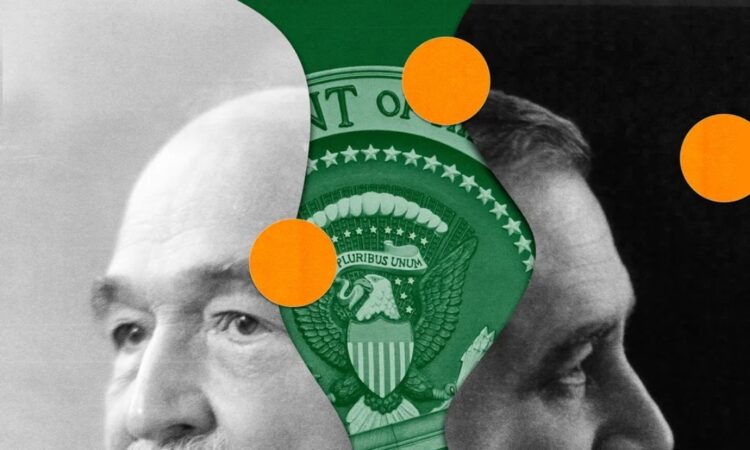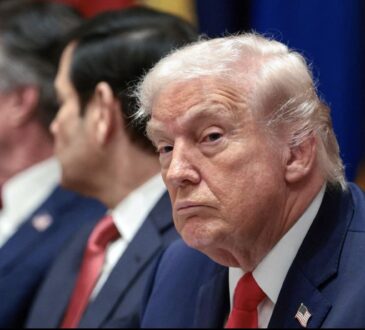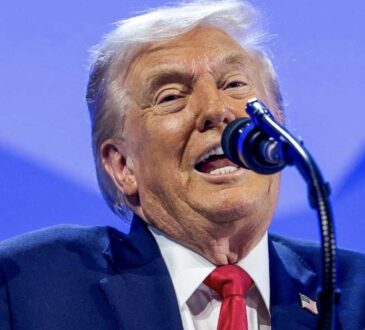
In 1933, early in President Franklin D. Roosevelt’s time in office, he wanted to remove a government official named William E. Humphrey. Humphrey had been placed on the Federal Trade Commission (FTC) by previous Republican presidents and didn’t agree with Roosevelt’s policies. Roosevelt asked him to resign, but Humphrey said no.
A month later, Roosevelt asked again, saying they didn’t see eye to eye and he needed someone he could trust. Humphrey still refused, so Roosevelt fired him. Not long after, Humphrey passed away, and the person handling his estate sued the government, claiming the firing was illegal and that they were owed back pay. The Supreme Court agreed. It ruled that Congress had the power to protect members of certain independent agencies from being fired by the President without a good reason.
That decision, known as *Humphrey’s Executor v. United States*, helped shape how modern independent government agencies work. These agencies—like the SEC, NLRB, and Consumer Product Safety Commission—are meant to work without direct political interference, and their leaders can only be removed for serious misconduct or failure to do their jobs.
Now, nearly a century later, that decision is in serious danger. For years, conservatives have argued that this setup gives too much power to agencies that aren’t directly controlled by the President. They believe in something called the “unitary executive theory,” which says all executive power should belong to the President alone. Even before Trump, conservative legal thinkers wanted to undo *Humphrey’s Executor*, seeing these agencies as part of a problematic “fourth branch” of government. During Trump’s presidency, efforts to weaken or ignore that decision picked up speed, and the Supreme Court—now with a conservative majority—has been slowly chipping away at it.
In 2020, the Court ruled that the structure of the Consumer Financial Protection Bureau was unconstitutional because it only had one leader who couldn’t be fired at will. The Court said this made the agency too independent, even though they tried to distinguish it from the FTC by saying the FTC had multiple commissioners. Still, it was clear the Court was willing to undo parts of *Humphrey’s Executor*.
Most recently, in the case *Trump v. Wilcox*, the Court showed just how far it’s willing to go. Trump had fired two Democratic commissioners from government agencies, and a lower court had ruled they should be reinstated. But the Supreme Court quickly stepped in and blocked their return, suggesting it’s ready to get rid of *Humphrey’s Executor* altogether. The liberal justices strongly disagreed. Justice Elena Kagan, in a sharply worded dissent, criticized the majority for rushing to change long-standing legal rules without proper process. She warned that this kind of shortcut undermines the fairness and stability of the law.
Kagan pointed out that for nearly a hundred years, presidents from both parties have followed Congress’s rules about independent agencies. She questioned whether it was really necessary for the President to have the power to fire agency members immediately, before the Court even officially decides if the old ruling should be thrown out. She warned that this kind of impatience signals how the Court will likely rule in the future—favoring a president with nearly total control over executive agencies.
The majority tried to calm concerns by saying that the Federal Reserve Board—America’s central bank—would still be protected and not affected by their ruling. But Kagan wasn’t buying it. She said this special exception for the Fed made no legal sense, since the Fed is protected by the same rules and legal history as all the other agencies now under threat. Making up special rules for one agency while taking away protections from the rest, she said, is a dangerous and inconsistent way to make law.
The bigger issue isn’t just what happens to one old court decision. It’s how the Supreme Court is handling it—rushing to act, picking cases that support a specific political agenda, and ignoring long-standing precedent. Courts are supposed to apply the law fairly and carefully. When they don’t, they risk becoming just another political tool. Right now, as the executive branch pushes its limits, it’s more important than ever that the courts act responsibly. If they don’t, we lose one of the last safeguards against abuse of power. Humphrey probably wouldn’t be happy with how this is playing out. And if Alexander Hamilton were alive, he’d likely be outraged.




